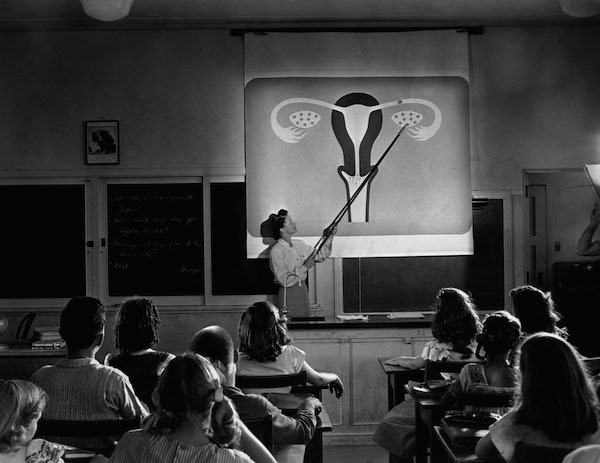Talk or not to talk about sex?
Why is talking about sex taboo? Should we not be talking about it more as it is a natural part of our life and is important for our survival? Will I be ready to have the talk about the birds and the bees with my daughter and answer all her questions?
These are some of the questions that have been in my mind for a few months now. Now you may wonder what I have been reading or watching recently to have all these questions. Firstly, I would like to clarify, I have not been going back to reading Fifty Shades Grey or the Kama Sutra. No, this is far more interesting. Actually, I have been reading about how the Dutch educate their kids about sex.
Yes, you heard correctly, the Dutch!
Now before you start putting your hands up and say the Dutch have a different attitude toward sex and that they are more open when it comes to matters relating to sex, I ask you to keep an open mind and read on!
However, before we go any further, I would like to clarify that this post is not going to provide you with a critical evaluation of the sex education program offered in the Netherlands; this post is my evaluation of the message I received about sex in the light of this newfound information.
Although it has been a more than decade (or two—don’t want to give too much away here) since I sat in my sex education class, I personally feel the message about sex and the woman’s place in matters relating to sex has not changed much.
So, before looking at the unconventional teachings by the Dutch, let us dive into the message I had received about sex in the mid-1990s.
The much-awaited message
Sex education for me was about menstruation, pregnancy, and sexually transmitted diseases (STD). It was hard to feel that sex happened between two human beings, it seemed so mechanical, robotic, and dangerous. There was never a mention of intimacy, passion, feelings, or emotions. Why would anyone want to do it? I used to think.
As a girl growing up in the 1990s, I feel we were more scared and ignorant about sex and our intimate parts of our bodies compared to our male counterparts. How sad is it to grow up not knowing your own body and barely knowing the proper names for your genitals? Our education was solely focused on scaring us and making us feel like we (girls) are constantly in danger once we hit puberty.
And as we start learning and noticing our genitals, we girls start to feel ashamed of it. Taboos around menstruation, pictures of women in magazines and movies make us feel dirty and impure. We feel the public scrutiny of our genitals. So we rely on razors, lasers, and cosmetic surgery to make it look acceptable.
The main goal of our vagina is to be part of the whole baby-making process and, when we enter into a relationship or get married, our role in this seemingly dangerous activity is to make sure our husband/ partner/boyfriend is sexually satisfied every time they would like to engage in sexual activities. I don’t think this has changed much over the years and no wonder men have trouble understanding, no means no.
The only measurement of our satisfaction in sex is our partner’s measure of their satisfaction. If he was not satisfied or didn’t come back for more, you did a lousy job, sorry! The word orgasm was solely dedicated to men; we women never could feel any sexual desires. It is quite rare for a man to consult their partner about their boundaries and what they would like to do in the bedroom and women were never encouraged to speak up about what they enjoyed. (I don’t think many of us would have a clue even if they did!)
You are a “spoil sport” if you don’t comply with your partner’s every request and a “slut” if you enjoyed sex or had the wanting to be pleased in the bedroom.
Again, I feel this has not changed much over the years. As Peggy Orenstein mentioned in her TED Talk in 2016, it is quite sad to see that in the modern world, girls and women are being encouraged to speak up and express themselves in all facets of life except in the bedroom.
I have heard and been told by men that we women are so lucky to be a woman as we would not mind if we don’t have sex ever again and we don’t think or need it as often as them. While this is far from the truth—I am not going to get into how wrong of a statement it is here—I feel this is a fair comment made by men given that formal sex education has failed them as well, and much of their understandings and experiences comes from magazines and pornography.
Okay, so what are the Dutch saying about all this…
The main reason I am drawn to this approach is that their conversations are not entirely focused on sexual intercourse and scaring their kids. Their goal is to prepare their future generations to engage in safe, healthy, enjoyable sex when both parties feel the time is right.
For the Dutch, sex is also about love, respect, intimacy, consent, open, nonjudgmental conversations, and having fun! Apparently, they don’t consider sex as an awful experience. (Surprise face.) They also talk about contraception and make sure condoms are available in vending machines in public toilets.
OMG. I could hear you say, I know I don’t even look at an aisle with condoms in the supermarket because of the fear of being judged.
A few more important facts of the Dutch model: they are letting boys embrace their feelings and emotions and addressing gender identity and homosexuality. It gets better—it is by law that all primary school children get some form of sex education.
Breathe, just breathe. There is nothing to panic about—the activities have been designed for kids to get an understanding of intimacy and their bodies, so you can relax! It is all part of the journey and the curriculum is supported by research. There have also been many studies carried out by reputed entities that support a comprehensive sex education program (for example, a 2008 United Nations report).
Hopefully I have not ruffled too many of your feathers with this topic. My main goal in this article is to evaluate the message I had received as a kid with reference to a model that has proven to give better results. I know the scaring technique may have worked for us in the past, but has it actually brought up a society that engages in open, healthy conversations about sex and engage in respectful, healthy, enjoyable sexual activities?
Can we learn something from the Dutch and change our attitude and conversations around sex? Can we teach our kids that sex is much more than sexual intercourse—it also incorporates respect, intimacy, and safety, and teach them not to be embarrassed to reach out to their adults?
Also, with this awareness, can our kids and society be more acceptable when it comes to matters of love?
I personally feel it is an important topic and definitely not a taboo to have these conversations in the modern world. These conversations will not only help our future generations but also ourselves.
It is not too late for us as well ladies; we can change or improve our experiences with sex. We are entitled to express ourselves and deserve to have a good time in the bedroom as much as our men. So, let’s go crack open a bottle of wine and start having meaningful, honest conversations with our girlfriends and our partner of choice.
I would love to hear your thoughts on this topic. Please leave a comment below.
~


 Share on bsky
Share on bsky





Read 2 comments and reply